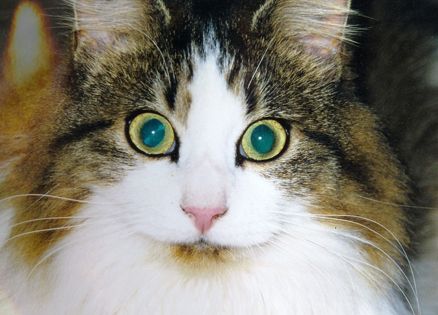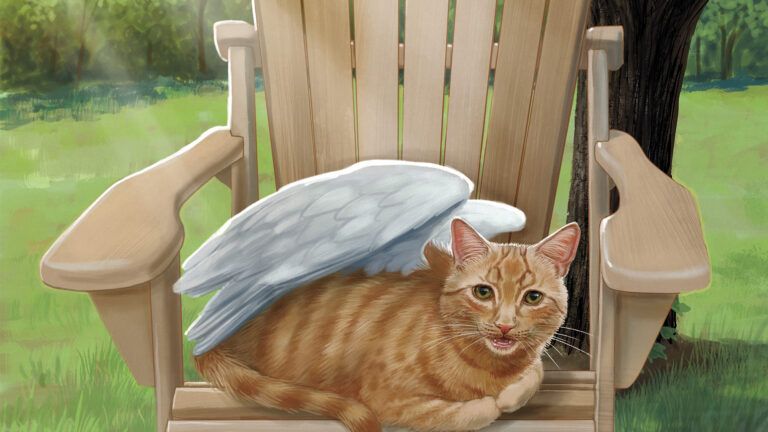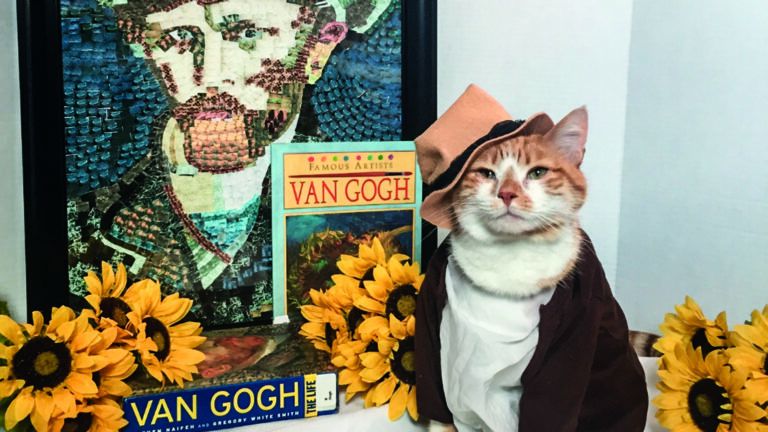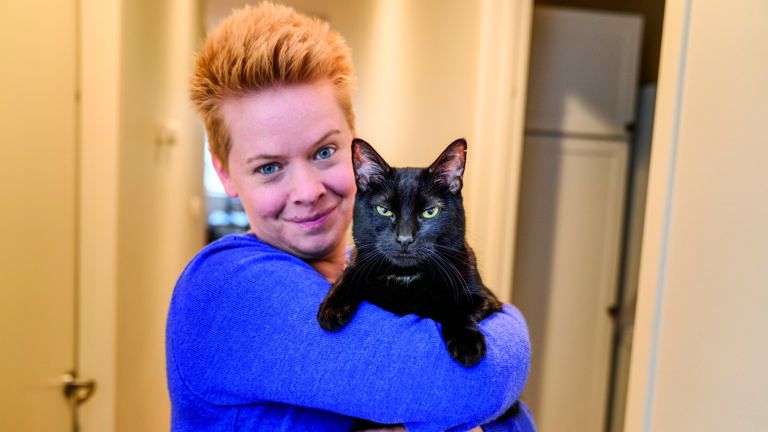When I walked into the animal shelter to drop off supplies, I didn’t expect to bring home the most influential cat of my life. I had never seen a cat like this.
I came from a family full of cat lovers, and I had a cat named Emma living with me. As soon as I saw the long-haired black cat I asked about him. His body had tremors, and his head bobbed back and forth. He had something called Cerebellar Hypoplasia (CH). The cerebellum, the part of the brain that controls motion and balance, didn’t develop properly because his mother had distemper when she was pregnant. They are also known as floppy cats. He was about 6 years old and had been at the shelter for over two years.
Over the next two weeks I debated whether I could take care of a cat with a disability. Seven-year-old Emma was already a princess. I went back to the shelter almost every day to see him. I was fascinated by him, and I decided I could do it. He was for me.
Although he was a neutered male, the shelter had named him Sierra because they missed that fact not knowing what was wrong with him. After glowing recommendations from my vet, I brought Sierra home. I left the room for a minute, and when I came back, he was on the couch. He was home.
Over the next couple of years, I became known as the go-to person for special needs animals. I adopted another CH from a rescue in New Jersey, Nina the Ballerina, because it takes her the seven basic ballet moves to get into the litter box. I was contacted by someone in Long Island who asked if I would take a young CH cat named Sully that had been living at a vet his entire life. Someone had brought him in and left him there.
I now have a kitten with deformed front legs. I was contacted about her when she was brought to a local vet. Amy, aka Monkey, is amazing to watch as she has adapted to her disability. If an unadoptable overweight cat named Josie counts that make six cats that I now have. I also have enough hair to make another cat.
I fenced in my yard to give them all a chance to be outside. I never take a step without looking at my feet first. If one falls out of the litter box during well, you know, I still appreciate the effort. When one falls into their food, I clean them and the floor up. If I hear a bang or crash in the middle of the night, I just roll over because it will still be there when I get up. I know I’ll be able to enjoy it then.
As in many parts of life, to deal with special needs animals a person needs unconditional love, patience and acceptance. And a sense of humor doesn’t hurt either.
—Jane Bennett, guest blogger






